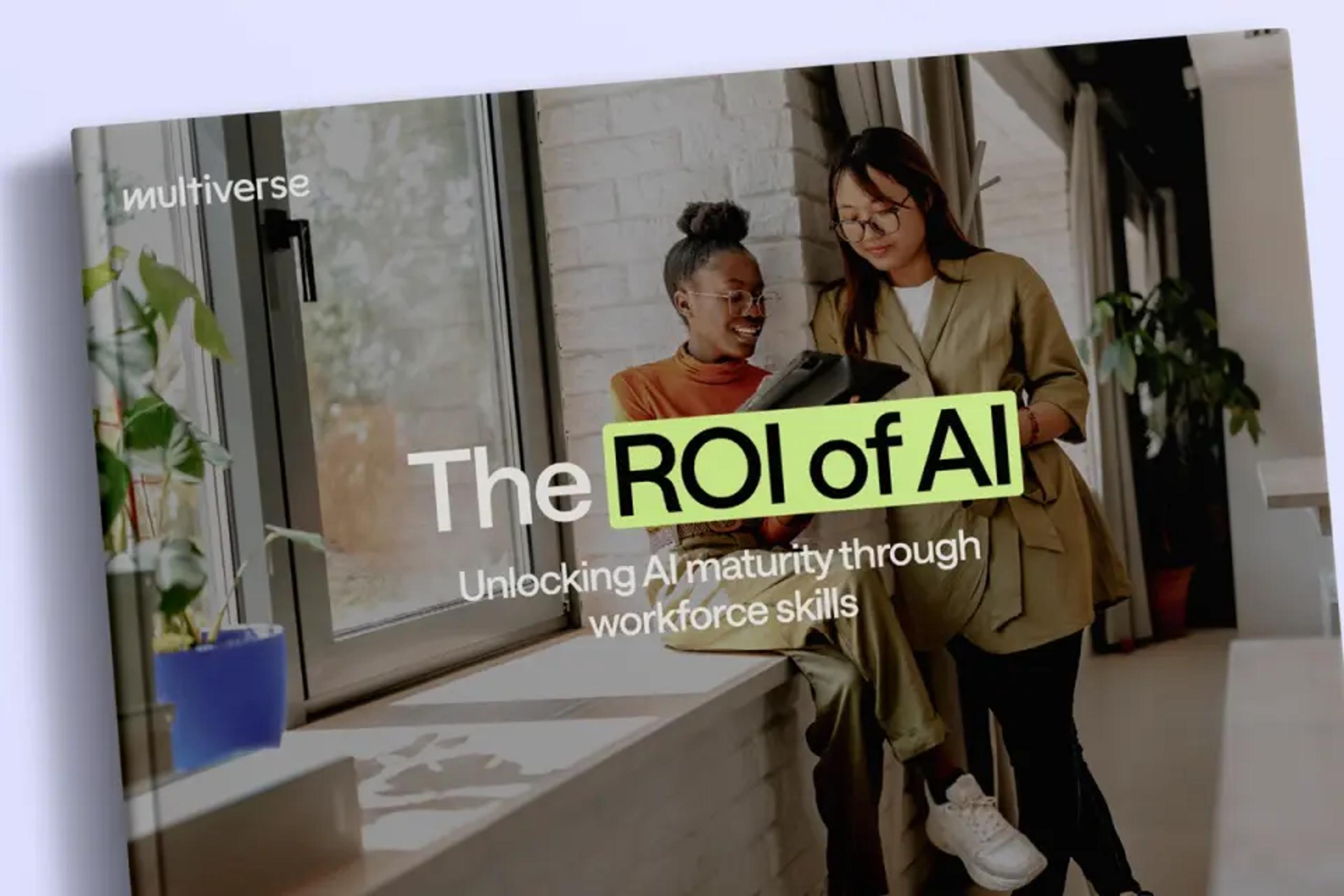There are few opportunities bigger than that posed by digital transformation and access to Big Data. But while business leaders globally are increasing budgets for IT solutions(opens new window), there is a lack of data skills within the workforce that can impact the return on these investments. Business teams often struggle to make decisions without access to their data or ability to draw insights from it without the support of centralised data teams, but internal data experts are stretched out.
As a result, some firms have pivoted to spend more on consultants or hire more experienced data scientists. This in turn doesn't help businesses achieve longer term autonomy and decision-making power within their workforce.
Knowing that upskilling existing employees is more profitable for a business than hiring new people(opens new window), many employers see an opportunity in the Apprenticeship Levy to embed data skills in their teams.
At Multiverse's recent roundtable meeting, we brought together industry leaders to share challenges and best practice for building data capabilities in-house. Here are our key takeaways.
Developing data analytics capabilities can help employees demystify their data, and build their confidence in decision making, reducing their reliance on data teams and speeding up project delivery and product development.
“My team isn't responsible for the main database. But, in the abundance of data, my team can now see a transparent journey of where the revenue comes from,” says Dom Perkins, Digital Advertising Strategy Director, Immediate Media.
Employees from Dom’s team participated in the Multiverse Data Fellowship programme. Over the course of 18 months, they learnt how to access the right data, frame the right business questions and use their analytical skills to answer them.
“They're now able to use data segments without over-relying on our overstretched data team. This is very efficient for us in many ways,” says Dom. “For example, this has enabled us to move forward quickly on product development. Having the ability to analyse data within our team has cut out so much time that we’d normally spend on product testing and assumptions!”
Equipping non-data teams helps drive business performance. Drawing conclusions from the customer behaviour data enabled Dom’s team to better define profitable activities. This proved to be especially important to the business during Covid-19 pandemic: with reduced budgets, data-savvy teams can spend less time and money on testing whilst still delivering great financial results.
In the public sector - where success is often measured with impact and ultimate outcomes - data literacy enables people to ask the right questions. For example, finding out what decisions impacted data trends, and using that knowledge to have greater confidence in future decisions.
The commercial team at Immediate Media also found that learning how to visualise data and draw insight from it is one of the greatest ways to bring the wider business onto their journey. Presenting their commercial concepts to the leadership team and stakeholders using data visualisation has been a game-changer: it helped them back up their ideas with evidence, reveal trends, identify potential risks and avoid them.
At the same time, there is a benefit in upskilling project sponsors and stakeholders in data fundamentals. This could enable the leadership team to base their strategy on data insights, and create a more data driven culture across the organisation.
Multiverse's research revealed that there is a missing link between internal data experts, commercial teams and customers - a person who can analyse, interpret and action data insight in the context of your business. This ‘analytics translator’ also needs to be able to communicate complex concepts with both technical and non-technical audiences.
Embedding the ‘translator’ skills into the organisation requires knowledge of the power of analytics to transform the business. Multiverse's Data Fellowship trains confident data analysts who are able to extract and visualise data across a range of tools and technologies, and draw insights from it. The programme also builds an understanding of more advanced data science topics like machine learning in Python, how to work with API data, natural language processing, big data frameworks, and much more. Like any other apprenticeship, the programme is fully funded by the Apprenticeship Levy.
Contact us(opens new window) to find out how we can help you embed data capabilities into your organisation with the Apprenticeship Levy.




